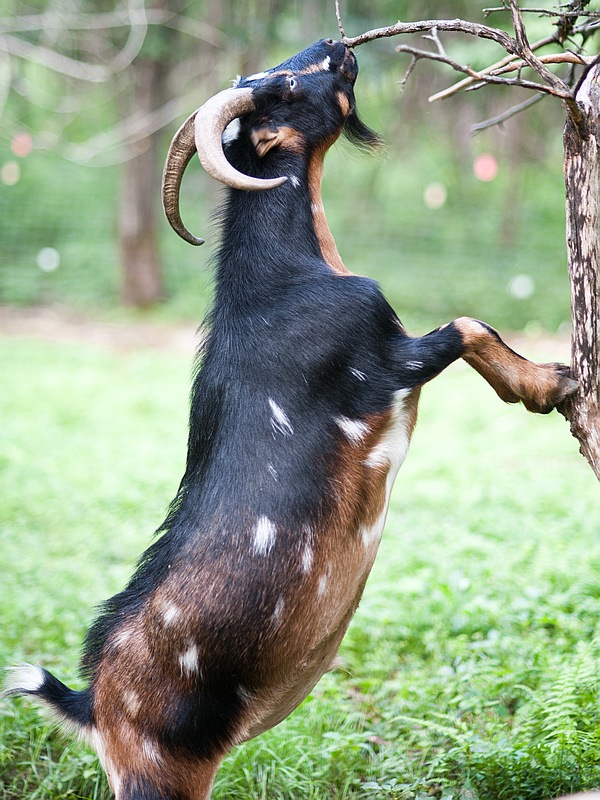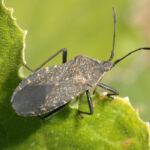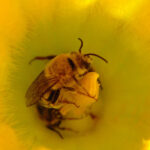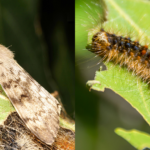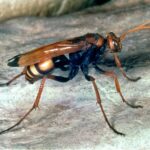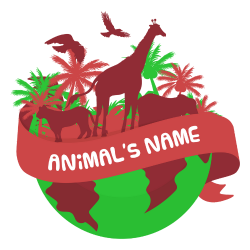Nigerian Goat: History, Facts, Size, Habitat, Classification
Nigerian Goats, as their name suggests, have a fascinating history and are an interesting species to explore. These small-sized goats are native to Nigeria and have been around for centuries. In fact, they have become quite popular around the world due to their unique characteristics and adaptability.
Let’s delve into some remarkable facts about Nigerian Goats. First and foremost, their size is an intriguing feature. Adult males, known as bucks, can weigh up to 200 pounds, while females, called does, are slightly lighter. They have short to medium-length coats that come in a variety of colors, such as black, brown, and even white.
You might be wondering about the habitat where Nigerian Goats thrive. Well, these adaptable creatures can live in various environments, but they prefer dry and semi-arid regions. They are known for their excellent foraging abilities and can survive on a wide range of vegetation, making them quite self-sufficient.
From a classification perspective, Nigerian Goats belong to the Capra hircus species, which encompasses various domestic goat breeds worldwide. They are classified under the dwarf or pygmy goat group, along with other small-sized goat breeds. This classification helps scientists and farmers better understand and manage these incredible animals.
In our blog, you can find detailed information about Nigerian Goats along with articles on over 155 different animal species from around the world. So, stay tuned for more intriguing insights into the diverse animal kingdom!
History of Nigerian Goat
The Nigerian Goat has a long and fascinating history that dates back to ancient times. These unique animals originated from Africa and were brought to America by European settlers during the colonial period. They were highly valued for their milk, meat, and ability to adapt to various climates, making them an essential part of many farming communities.
In the early days, Nigerian Goats were primarily raised by small-scale farmers who relied on them for sustenance. These goats proved to be hardy and resilient, able to graze on a variety of vegetation found in their natural habitats. As the demand for their products increased, Nigerian Goats started to be selectively bred for specific traits, such as increased milk production and meat quality. This led to the development of improved breeds that were even more valuable to farmers.
Over time, Nigerian Goats became popular not only for their practical uses but also for their unique physical characteristics. They are known for their small size, which makes them easy to handle and care for. Additionally, their striking colors and patterns, such as spots and patches, have made them sought after in the world of show competitions. Nigerian Goats have a friendly and docile temperament, making them ideal companions for both children and adults alike.
In conclusion, the history of Nigerian Goats traces back to ancient times and their journey from Africa to America. They have played a vital role in the lives of farmers, providing milk, meat, and adaptability to diverse climates. These goats have evolved over the years through selective breeding and are now known for their small size, vibrant colors, and amiable nature. The Nigerian Goat remains a cherished part of many communities, bringing joy and practicality to those who raise them.
Importance of Nigerian Goat
The Nigerian goat is a special animal that holds great importance. One reason is that it provides milk, which is a valuable source of nutrition for many people. Milk is rich in vitamins and minerals that help us grow and stay strong. It can be used to make various dairy products like cheese and yogurt, which are loved by many.
Furthermore, Nigerian goats are also known for their meat. Goat meat is very delicious and enjoyed by many people around the world. It is a good source of protein and helps in building and repairing our body tissues. Additionally, Nigerian goats are also known for their ability to adapt to different climates and conditions, making them a reliable source of food and income for farmers.
Another important aspect of Nigerian goats is their ability to produce offspring. They have good breeding capabilities and can give birth to many kids, or baby goats. This is important because it allows farmers to expand their goat herds and improve their productivity. It also provides opportunities for people to start their own goat farms, which can help to alleviate poverty and provide a sustainable source of livelihood.
In conclusion, Nigerian goats are highly important animals due to their ability to provide valuable milk and meat, their adaptability, and their ability to reproduce. They are not only essential for our nutrition, but also for the economic development of communities. The Nigerian goat is a special animal that deserves our attention and care.
Amazing Facts About Nigerian Goat
1. Nigerian goats, also known as pygmy goats, are a small breed of domestic goat.
2. They originated from West Africa, particularly Nigeria.
3. Nigerian goats are highly adaptable and can thrive in various climates and terrains.
4. These goats are known for their agile nature and excellent climbing skills.
5. Nigerian goats have a compact and muscular body, with a short neck and strong legs.
6. They have a short, dense coat that comes in various colors, including black, brown, and white.
7. Nigerian goats are popular as pets and are often kept on farms or in backyard settings.
8. They are known to have friendly and sociable personalities, making them great companions.
9. Nigerian goats are excellent foragers and can graze on a wide variety of vegetation.
10. Due to their size, Nigerian goats consume less food compared to larger breeds.
11. These goats are known for their high fertility rates, often giving birth to twins or triplets.
12. Nigerian goats have a lifespan of around 10 to 12 years.
13. They are highly adaptable to different feeding programs and can thrive on good quality forage.
14. Nigerian goats are known for their milk, which is rich in nutrients and often used for making cheese and soap.
15. Their small size makes Nigerian goats easier to handle and less demanding in terms of space and resources.
Can we keep Nigerian Goat as our Pet?
Nigerian goats, also known as Nigerian dwarf goats, are often preferred as pets due to their small size, gentle temperament, and playful nature. These goats are originally from West Africa but have gained popularity worldwide. However, while they make wonderful companions, Nigerian goats require specific care, space, and resources, and it is important to understand that they are not suitable for everyone.
Firstly, Nigerian goats require ample space to roam and graze. They are active animals that love to explore and need a proper outdoor area to stay healthy. It is essential to have a securely fenced yard or pasture where they can roam freely and have access to fresh grass and forage. Individuals living in apartments or small houses may find it challenging to provide the necessary space for a Nigerian goat, which is why it may not be advisable to keep them as pets in such living situations.
Furthermore, it is crucial to consider the needs of the Nigerian goats in terms of their nutrition and healthcare. They require a balanced diet consisting of hay, fresh water, and specialized goat feed. Regular veterinary check-ups, vaccinations, and deworming are also necessary to ensure their well-being. All these responsibilities require time, effort, and financial investments, which not everyone may be able to consistently provide.
In conclusion, owning a Nigerian goat as a pet is not impossible, but it requires careful consideration and dedication. Their need for space, proper nutrition, and healthcare make them better suited for individuals with suitable living arrangements and the ability to fulfill their specific needs. It is crucial to fully understand the responsibilities and commitments associated with keeping Nigerian goats before deciding whether they would be a suitable pet for you.
Size of Nigerian Goat
The Nigerian Goat is a small-sized animal that can be found in Nigeria, as its name suggests. It is a popular breed of goat that is known for its compact size and friendly nature. The Nigerian Goat is often kept as a pet or for milk and meat production.
In terms of size, the Nigerian Goat is considered one of the smallest goat breeds in the world. On average, it stands at about 17 to 23 inches tall at the shoulder and weighs around 30 to 50 pounds. This makes it a perfect choice for small farms or backyard settings where space is limited.
Despite its small stature, the Nigerian Goat is known for its robust and sturdy build. It has well-developed muscles and a strong bone structure that allows it to navigate rough terrains with ease. Moreover, their small size makes them easier to handle and care for, especially by children or people with limited physical strength.
In conclusion, the Nigerian Goat is a small but mighty animal. Its compact size and friendly nature make it an ideal choice for those looking to keep goats in smaller spaces. Whether for pets, milk, or meat production, the Nigerian Goat can deliver on all fronts. So, if you’re considering getting a goat as a pet or for your small farm, the Nigerian Goat might be the perfect fit for you.
Habitat of Nigerian Goat
Nigerian goats, also known as Nubian goats, are animals that can adapt to different environments and are mostly found in Nigeria, West Africa. These goats are well-suited to the country’s tropical climate, which means they can tolerate hot weather conditions. They prefer living in areas with a lot of vegetation, such as grasslands and forests, as they need lots of food to eat. Additionally, they are capable of surviving in places with limited water resources, making them suitable for dry regions.
In their natural habitat, Nigerian goats live in small groups called herds. They usually gather around areas that have enough shrubs and trees that provide shade and shelter from the scorching heat. These goats are known for their agility and ability to climb steep mountains, allowing them to access different parts of their environment to find enough food. They are also excellent foragers, using their small mouths to eat leaves, twigs, and grass from the ground and low branches.
Nigerian goats are adaptable and can also tolerate some different habitats. While they thrive in tropical regions, they can also survive in temperate climates as long as they have enough food and shelter. These goats are known for their strong adaptability and can even be found in zoos or kept as pets in other parts of the world. However, they are most commonly found in Nigeria, where they are an essential part of the agricultural community and contribute to the livelihoods of many people.
Evolution of Nigerian Goat
The Nigerian Goat is a small breed of goat that is native to Nigeria. Over time, these goats have evolved and adapted to their environment in order to survive and thrive.
In the early days, Nigerian Goats were wild animals that roamed freely in the Nigerian forests. They had to be strong and agile to navigate through the dense vegetation and escape from predators. As time went on, humans began to domesticate these goats, which allowed for selective breeding to occur. This means that only the goats with the most desirable traits were chosen to reproduce, resulting in the development of a breed that was more suited to human needs.
Today, Nigerian Goats are known for their small size, high fertility, and excellent milk production. They have become popular among farmers for their adaptability to different climates and their ability to thrive in harsh conditions. Due to their small stature, they require less space and feed compared to larger goat breeds, making them a cost-effective choice for many farmers. Additionally, Nigerian Goats have a calm temperament, making them easy to handle and manage.
In conclusion, over the course of their evolution, Nigerian Goats have transformed from wild creatures into a valuable domesticated breed. Their ability to adapt to different environments and their desirable traits have helped them become popular among farmers. These goats have come a long way from their humble beginnings in the forests of Nigeria and continue to make a significant impact in the agricultural industry.
Classification of Nigerian Goat
The Nigerian Goat is a popular breed of goat that is native to Nigeria. It is a small-sized goat with a compact body shape. The Nigerian Goat is classified under the scientific name Capra aegagrus hircus, which means it is a domesticated subspecies of the wild goat, Capra aegagrus. This classification helps scientists and farmers understand and study the Nigerian Goat’s characteristics and behavior.
The Nigerian Goat is further classified under the family Bovidae, which includes other animals like sheep, cows, and antelopes. It belongs to the order Artiodactyla, which means it is a hoofed animal with an even number of toes. This classification helps us understand that the Nigerian Goat is related to other hoofed animals and shares common characteristics with them.
On a broader classification level, the Nigerian Goat is a mammal. Mammals are warm-blooded animals that have hair or fur on their bodies, give birth to live young, and nurse them with milk. This classification helps us understand that the Nigerian Goat is part of a larger group of animals that include humans, dogs, cats, and many others. Understanding the classification of the Nigerian Goat helps us learn more about its characteristics and how it fits into the animal kingdom.
Overall, the classification of the Nigerian Goat helps scientists and farmers understand its unique features and traits. It tells us that the Nigerian Goat is a domesticated subspecies of the wild goat, related to other hoofed animals, and part of the larger group of mammals. This knowledge is useful for studying the Nigerian Goat’s behavior, health, and overall care in order to promote its well-being and successful breeding.
How did Nigerian Goat Extinct?
1. Nigerian Dwarf Goat: The Nigerian Dwarf Goat is one of the most popular types of goats in Nigeria. It is small in size, friendly, and easy to handle. They are known for their milk production, which is rich and creamy, making them ideal for small-scale dairy farming.
2. Pygmy Goat: The Pygmy Goat is another popular breed in Nigeria. It is small in size, making it easy to manage and handle. They have a friendly and playful nature, which makes them great companions. Pygmy Goats are also known for their milk production and adaptability to different climates.
3. Sahelian Goat: The Sahelian Goat is well-adapted to the harsh conditions of the Sahel region in Nigeria. They have long legs and a slender body, which helps them survive in hot and arid climates. They are primarily raised for meat production and their ability to withstand drought and heat.
4. West African Dwarf Goat: The West African Dwarf Goat is a hardy breed that can adapt to various environmental conditions. They are small in size and primarily kept for meat production. Their meat is tender and flavorful, making them a valuable resource for farmers in Nigeria.
5. Red Sokoto Goat: The Red Sokoto Goat, also known as the Maradi Goat, is a popular breed in Nigeria and neighboring countries. They are well-adapted to the Sahelian climate and have good meat quality. They are also known for their ability to reproduce quickly, making them profitable for farmers.
6. Boer Goat: The Boer Goat is a large and meaty breed that originated in South Africa but has gained popularity in Nigeria. They are known for their fast growth rate and high meat yield, making them a profitable choice for commercial meat production.
7. Nubian Goat: Nubian Goats are popular in Nigeria for their high milk production. They have long, pendulous ears and a unique appearance. Their milk is rich in butterfat, making it suitable for making cheese, yogurt, and other dairy products.
8. Toggenburg Goat: Toggenburg Goats are often kept for their milk production. They are medium-sized goats with distinctive white markings on their face and legs. Their milk is high in butterfat and protein, making it suitable for cheese-making and other dairy products.
9. Alpine Goat: Alpine Goats are known for their adaptability to different climates and terrains. They are medium to large-sized goats and are primarily kept for milk production. Their milk has a rich flavor and is often used for making cheese and butter.
10. Angora Goat: Angora Goats are known for their long and luxurious fleece, which is used for mohair production. They have a gentle nature and are often kept for their fiber rather than for meat or milk production. Their hair is highly sought after and used to make clothing and other luxurious goods.
Geographical Presence of Nigerian Goat
The Nigerian Goat can be found in the West African region. It is native to Nigeria, as its name suggests, but it can also be found in neighboring countries like Benin, Togo, and Ghana. This region provides a suitable climate and vegetation for the Nigerian Goat to thrive.
However, Nigerian Goats are not found in other parts of the world like Europe, North America, or Asia. They are specifically adapted to the West African environment and may not survive in different climates or ecosystems. This makes them unique to their native region and not commonly seen in other parts of the world.
In West Africa, Nigerian Goats can be seen in rural areas where they are often kept by local farmers. They are valued for their meat, milk, and as pets. Nigerian Goats are known for their adaptability, hardiness, and high fertility rates, which makes them popular among small-scale farmers in the region.
In conclusion, the Nigerian Goat is mainly found in the West African region, specifically in countries like Nigeria, Benin, Togo, and Ghana. It is not commonly found in other parts of the world. These goats are well-suited to the climatic and environmental conditions of West Africa and are valued for their multiple uses by local farmers in the region.
Scientific Name of Nigerian Goat
The scientific name of the Nigerian Goat is Capra aegagrus hircus. This small-sized domesticated animal is a subspecies of the wild goat.
The Nigerian Goat is an important livestock animal in Nigeria. It is known for its small size and adaptability, making it suitable for various climates. It is a hardy breed that can survive in both hot and cold weather conditions. Nigerian goats have a unique appearance, with short, upright ears and a variety of coat colors and patterns.
These goats are mainly kept for meat and milk production. They have been bred selectively to have good meat quality and high milk yield. Nigerian goats are also valued for their ability to graze on different types of vegetation, making them suitable for areas with varying food sources. They are generally friendly and easy to handle, making them popular among farmers and herders.
In summary, the Nigerian Goat, scientifically known as Capra aegagrus hircus, is a subspecies of the wild goat that is domesticated in Nigeria. These goats are notable for their small size, adaptability, and diverse coat colors. They are commonly raised for their meat and milk production, and their ability to graze on different types of vegetation. With their hardy nature and friendly temperament, Nigerian goats are highly regarded in the Nigerian livestock industry.
Diet of Nigerian Goat
The diet of Nigerian goats is quite diverse, as they are able to thrive on a variety of plants and vegetation. These goats are mainly herbivores, which means they mainly eat plants. They love munching on grasses, leaves, and even small branches. Nigerian goats are known to be quite adaptable and can readily consume a wide range of plants found in their environment.
In addition to green plants, Nigerian goats also enjoy feasting on fruits and vegetables. They have a particular fondness for tasty treats such as apples, carrots, and even watermelon rinds. These fruits and vegetables provide important vitamins and minerals that are essential for the goats’ overall health and well-being.
Water is an essential part of every living creature’s diet, and Nigerian goats are no exception. These goats need a constant supply of fresh and clean water to stay hydrated. They usually drink water from lakes, streams, or troughs placed in their living spaces. Adequate water consumption is crucial for the goats’ digestion and overall body functions.
Overall, the diet of Nigerian goats mainly consists of plants, fruits, and vegetables, with water being an essential part of their everyday intake. Their adaptable nature allows them to consume a wide range of vegetation, ensuring their nutritional needs are met. With a balanced diet, Nigerian goats can lead healthy and active lives.
Locomotion of Nigerian Goat
The Nigerian Goat is a nimble and lively creature that moves in a unique way. When it walks, it puts one hoof in front of the other in a rhythmic pattern. This movement is called walking on quadruped. It is similar to how we humans walk, but the Nigerian Goat uses all four legs to support its body weight. This helps them maintain balance and move swiftly on various terrains like hills and mountains.
When the Nigerian Goat wants to move faster, it starts to run. Its body leans forward, and its hooves strike the ground with more force, pushing its body forward. Running helps the Nigerian Goat escape from predators and reach its food quickly. Sometimes, they even hop or jump when they are excited or want to go over obstacles in their way. These agile animals are known for their swift locomotion, making them highly adaptive to their surroundings.
Social and Sexual Behaviour of Nigerian Goat
The social and sexual behavior of Nigerian goats is quite fascinating. These goats are very social animals and love to be part of a herd. They form strong bonds with their fellow goats and enjoy spending time together. In fact, they often communicate with each other through bleating sounds.
When it comes to mating, Nigerian goats have a unique behavior. The males, known as bucks, become very active during the breeding season and compete with each other for the attention of the females, called does. They do this by showing off and making loud vocalizations. The dominant buck, who is usually the strongest and most attractive, gets to mate with the does.
During the breeding process, Nigerian goats engage in a behavior called “head butting.” This is when the bucks use their horns to gently bump into each other’s heads. It may seem aggressive, but it’s actually a way for the bucks to establish dominance and determine who gets to mate. Once a buck wins the competition, he will then proceed to mate with the receptive does.
In conclusion, Nigerian goats are very social animals that enjoy spending time together in herds. The males compete for the attention of the females during mating season through behaviors such as vocalizations and head butting. By understanding their social and sexual behavior, we can better appreciate and care for these amazing creatures.
Reproduction and Lifecycle of Nigerian Goat
The Nigerian Goat is a type of animal that reproduces and goes through various stages in its life cycle. Like other mammals, Nigerian Goats reproduce by a process called mating. This involves a male Nigerian Goat, called a buck, and a female Nigerian Goat, called a doe. The buck uses its horns to try and get the doe’s attention and mate with her. If successful, the doe becomes pregnant and carries the baby goats, known as kids, inside her for about 5 months.
Once the doe gives birth to the kids, they are very small and weak. But with the care and nourishment from their mother, they start to grow stronger. During this time, the kids mainly get their food by drinking their mother’s milk. As they grow older, they also start to eat grass and other plants. This helps them develop and become independent.
As time goes by, the kids continue to grow and mature. They go through different stages of life, just like human beings. Eventually, the female kids become does, while the male kids become bucks. Once they reach adulthood, they can start the process of mating and reproducing themselves, continuing the life cycle of Nigerian Goats.
In conclusion, Nigerian Goats reproduce through mating between a buck and a doe. The baby goats, or kids, are born and grow stronger with the help of their mother’s care. As they mature, they go through different stages of life before reaching adulthood, where they can reproduce and continue the cycle.
Threats to Nigerian Goat
Nigerian goats are adorable animals that require special care and attention. However, there are some threats that they face which we need to be aware of. One of the biggest threats to Nigerian goats comes from diseases. Just like humans, goats can also get sick from various infections. These infections can easily spread through the air or contact with contaminated surfaces. It is important to regularly check the health of Nigerian goats and provide them with proper vaccinations to prevent diseases.
Another major threat to Nigerian goats is predators. These animals are often targeted by predators such as coyotes, wolves, and even domestic dogs. Predators see Nigerian goats as an easy prey due to their small size and gentle nature. To protect Nigerian goats from predators, it is necessary to have secure fencing and keep a watchful eye on them, especially during feeding times when they are more vulnerable.
Lastly, Nigerian goats are threatened by habitat loss and environmental changes. As humans continue to expand their cities and agricultural lands, the natural habitat of Nigerian goats is decreasing. This affects their ability to find food and suitable shelter. Moreover, climate change also poses a threat to Nigerian goats, as extreme weather conditions like droughts or floods can disrupt their normal living patterns.
In conclusion, Nigerian goats face threats from diseases, predators, and habitat loss. It is important for goat owners and the community to be aware of these dangers and take necessary precautions to protect these valuable animals. Regular health check-ups, secure fencing, and efforts to minimize habitat destruction are essential in ensuring the well-being of Nigerian goats. By protecting and caring for Nigerian goats, we can preserve this unique and wonderful species for future generations to enjoy.
Population of Nigerian Goat
The population of Nigerian Goat animals is estimated to be around 17 to 18 million. These goats, which are native to Nigeria, are known for their hardiness and adaptability to various environments. They are commonly raised for their meat, milk, and hide, and are an important source of income for many farmers in Nigeria.
However, if the Nigerian Goat were to become extinct, it would have grave consequences. The loss of this breed would not only disrupt the livelihoods of many farmers, but it would also result in a decline in genetic diversity among goat populations. As a result, the overall resilience and adaptability of goat breeds could be compromised, making them more susceptible to diseases and environmental changes.
To prevent the extinction of Nigerian Goats, it is important to promote sustainable farming practices and conservation efforts. This includes providing proper healthcare, nutrition, and shelter for the goats, as well as breeding programs that aim to maintain and improve their genetic diversity. Additionally, raising awareness about the importance of preserving indigenous livestock breeds can also contribute to their protection and ensure the continued presence of Nigerian Goats in our ecosystems.
Conclusion
In conclusion, Nigerian goats are fascinating creatures, and learning about them can be truly enjoyable. These goats have a rich history, dating back to ancient times when their ancestors wandered the lands of Africa. Despite their small size, Nigerian goats are hardy animals that can thrive in various climates and conditions. They have adapted to their habitats over time, making them excellent survivors.
One interesting fact about Nigerian goats is their classification as a dwarf breed. Unlike other goats, they stay small in size while still producing a significant amount of milk. This makes them ideal for small farms or households with limited space. Additionally, their friendly and curious nature makes them wonderful companions and pets.
To summarize, Nigerian goats are delightful animals that have a lot to offer. From their history to their size and habitat, these creatures never fail to intrigue us. So whether you’re an animal lover or simply curious about different species, exploring the world of Nigerian goats will undoubtedly be an enriching experience.
Frequently Asked Questions about Nigerian Goat (FAQ’s)
Q: What is a Nigerian Goat?
A: A Nigerian Goat is a small-sized dairy goat breed native to West Africa.
Q: How big do Nigerian Goats grow?
A: Nigerian Goats are classified as a dwarf breed and typically stand around 17-21 inches tall at the shoulder.
Q: Are Nigerian Goats good milk producers?
A: Despite their small size, Nigerian Goats are known for their excellent milk production. They can produce around 2-3 pounds of milk per day.
Q: Do Nigerian Goats require special care?
A: Nigerian Goats are generally easy to care for and do not require any special care. However, providing them with a balanced diet and proper shelter is essential.
Q: Can Nigerian Goats be kept as pets?
A: Yes, Nigerian Goats can make wonderful pets due to their friendly and playful nature.
Q: Are Nigerian Goats good for meat production?
A: Nigerian Goats are not primarily raised for meat, as their small size makes them less suitable for meat production compared to larger breeds.
Q: Do Nigerian Goats require a lot of space?
A: Nigerian Goats are small and can adapt well to various living environments. However, they do need adequate space for exercise and grazing.
Q: How long do Nigerian Goats live?
A: On average, Nigerian Goats have a lifespan of 12-14 years.
Q: What is the average weight of a Nigerian Goat?
A: Nigerian Goats typically weigh between 45-80 pounds, depending on their gender and genetics.
Q: Do Nigerian Goats have any specific health issues?
A: Nigerian Goats are generally healthy animals, but they can be prone to some health issues like urinary calculi and parasites if not properly cared for.
Q: Can Nigerian Goats thrive in hot climates?
A: Nigerian Goats are well-adapted to hot climates and can tolerate high temperatures without much difficulty.
Q: Are Nigerian Goats good for milk processing?
A: Yes, Nigerian Goat milk is popular and can be used to make various dairy products like cheese, yogurt, and soap.
Q: How often do Nigerian Goats breed?
A: Nigerian Goats can breed throughout the year, but they are most fertile during the fall.
Q: Are Nigerian Goats good at climbing?
A: Nigerian Goats have excellent climbing abilities which allows them to scale rocks and steep slopes with ease.
Q: Can Nigerian Goats be crossbred with other breeds?
A: Yes, Nigerian Goats can be crossbred with larger breeds to create animals with enhanced milk production or larger size.

Hi there! I’m Morgan Gutierrez, and I love animals! I work as a Seasonal Animal Care Specialist at Brookfield Zoo and also teach people about animals, which is super fun. I studied at Valparaiso University in Lockport, Illinois, where I learned even more about these amazing creatures.
I’m not just about taking care of animals; I write articles about them, too! I explore and share many interesting animal stories, from cute kittens to giant elephants.
In the past, I’ve worked with veterinarians, helped with research, and even been an Animal Ambassador, bringing animals closer to people. Animals are my passion, and I enjoy helping others learn about them. So, if you ever want to know about animals, feel free to ask. I’ll explain it in a way that’s easy to understand, just like talking to a friend!

